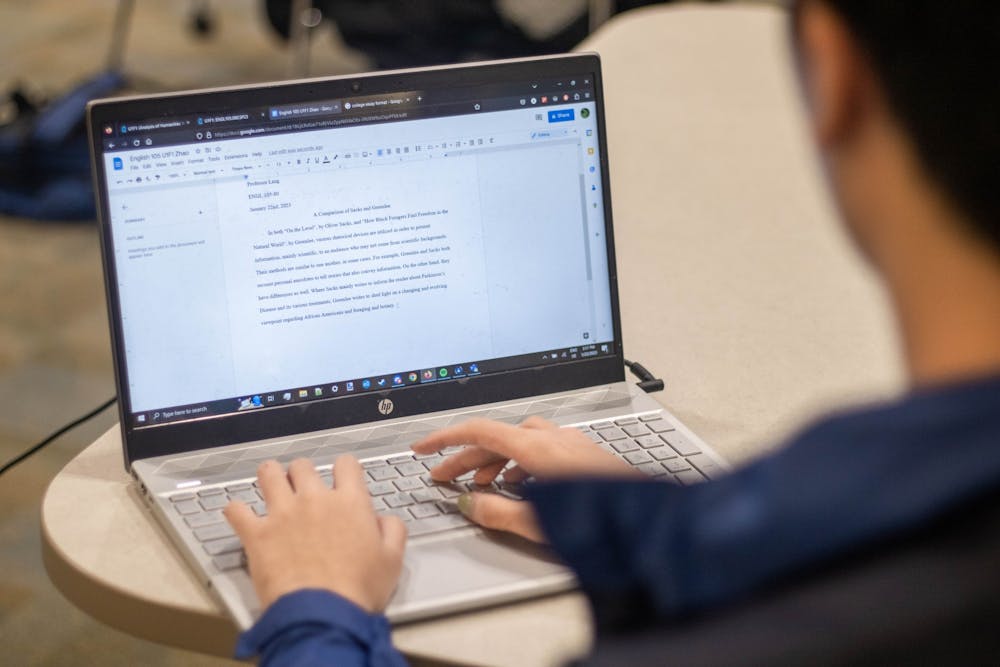You have 50 minutes left until 11:59 p.m. and you haven’t even started a first draft of an essay due at midnight. It counts for 25 percent of your grade. No late credit is offered. There is no hope.
Or so you may think.
Luckily for students everywhere, with ChatGPT, a chatbot launched by OpenAI capable of producing detailed and articulate answers, all you have to do is input your essay prompt and you'll have an answer.
“Write me a 1,000-word paper comparing and contrasting Christine de Pisan with Margery Kempe.” The perfect solution, right? Wrong.
In the specific case of student essays, an opinion or thesis has to be defended with logical analysis and must cross-reference various sources. This part of the research process can be replicated by artificial intelligence, but forming an opinion is the job of the user.
Processing lots of material and understanding the context of that information is the first step, followed by forming an opinion of your own. That is where AI falls short, however, and why using AI is irrelevant in situations such as essay writing.
When you ask ChatGPT what it's limitation are, one response you might get is as follows:
"ChatGPT is a machine learning model and it is not equivalent to authentic human expression because it lacks the ability to understand the context and meaning behind the words, as well as the capacity to reason, make decisions, and understand emotions. It also doesn't have the capacity to experience emotions, physical sensations or personal experiences. It can not understand sarcasm, idioms or any nuances of human language and it can not come up with new ideas or concepts. It simply can generate text based on the patterns it has learned from the dataset it was trained on."
ChatGPT merely replicates patterns of information, thought and analysis that already exist. Sure, the average college student is probably not presenting radically groundbreaking commentary in their essays, but they are also not expected to simply regurgitate information coming from credible sources. Critical thinking must be employed and that process requires the capacity to reason, make decisions and understand emotions — all things ChatGPT admits to not being able to do.




